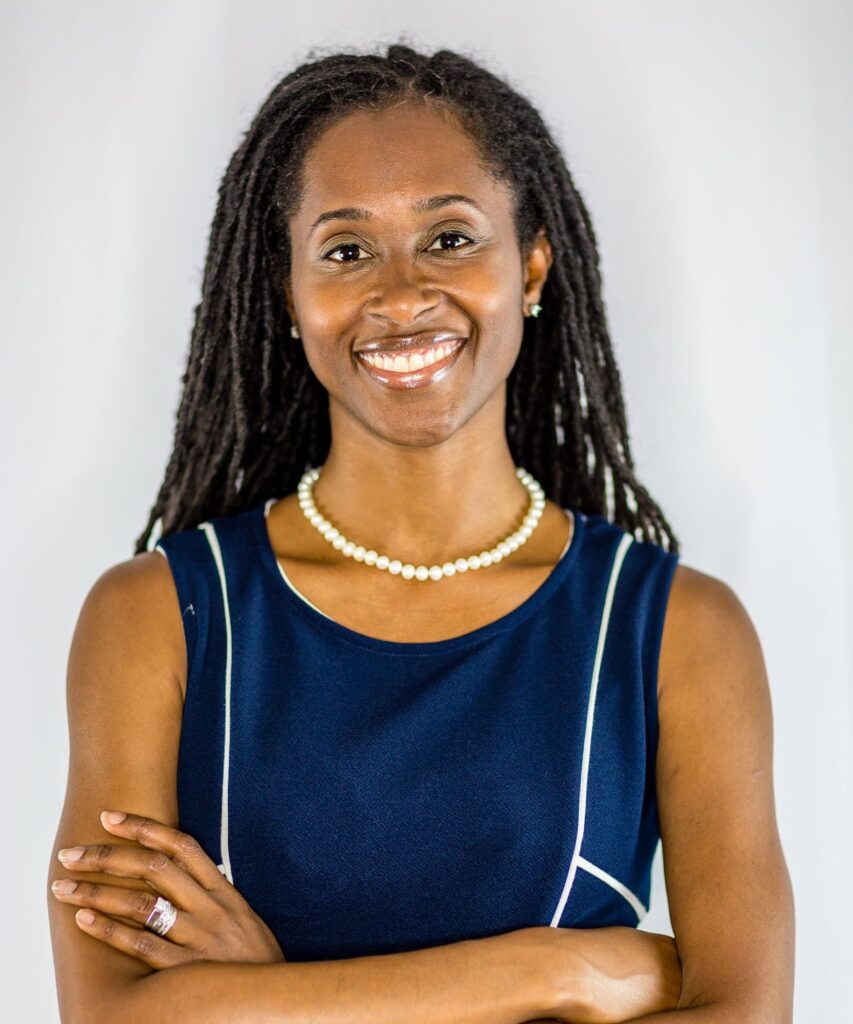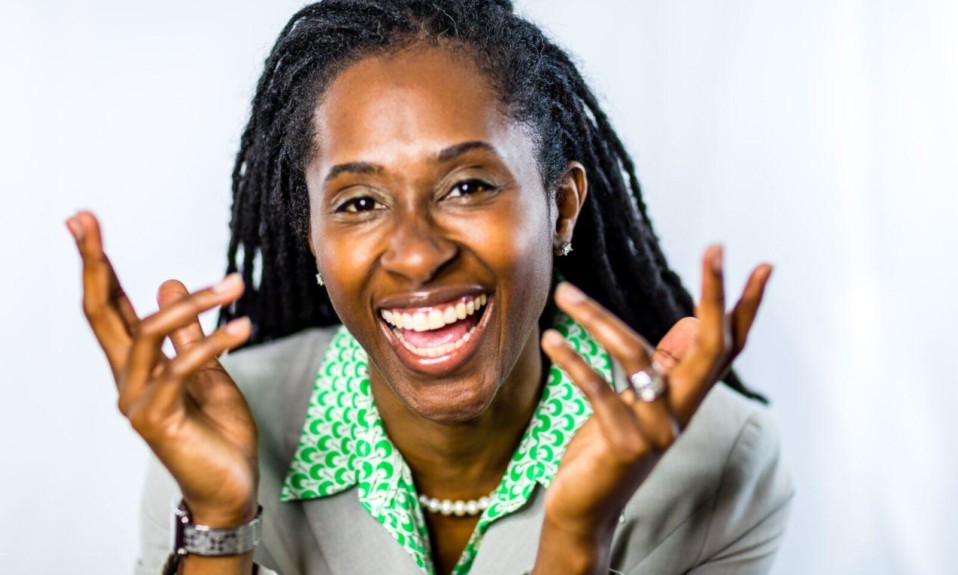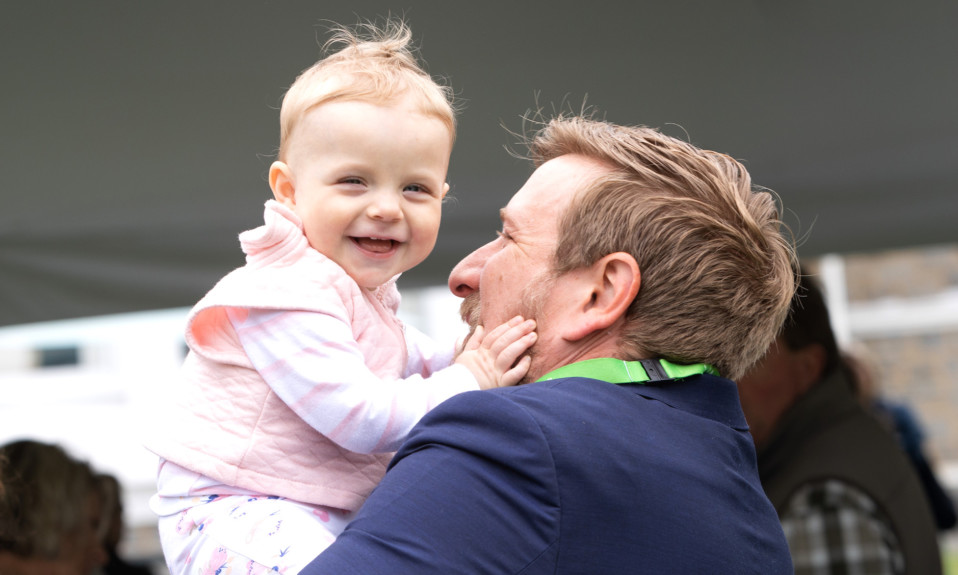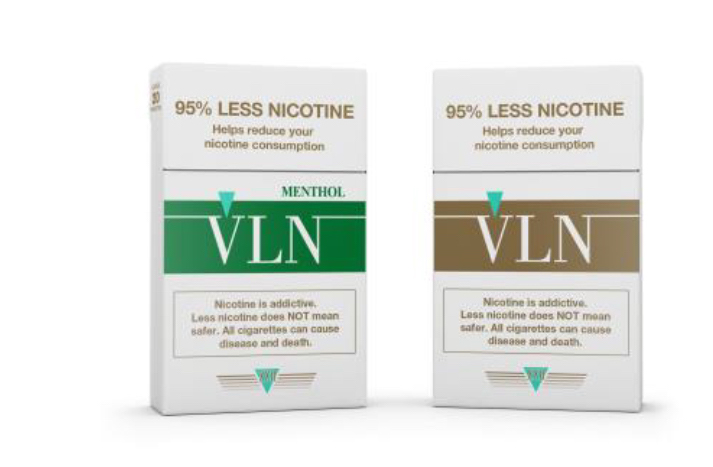The In Recovery podcast host and chief medical officer of Eleanor Health brings smarts, compassion and the soul of an activist to her work
By William Wagner
To understand what Nzinga Harrison, M.D., is all about, you need not look beyond her first name.
The original Nzinga was a freedom fighter during her reign in the 1600s as the queen of Ndongo and Matamba (now Angola), repelling the Portuguese empire and making her lands a sanctuary for runaway slaves. For two African American parents from Indianapolis in the 1970s who dreamed that their newborn daughter would create positive change in the world, Nzinga seemed like the perfect name.
“Queen Nzinga made it the law that if any person of African descent was in bondage and escaped to Angola, they were automatically free,” says Harrison’s father, Mmoja Ajabu. “It was so out of the ordinary for a woman to be leading men. We gave her that name because we wanted her to be a leader among people. We knew it would be hard for her to do as a female, especially a female of African descent, in this world. She has lived up to that very well.”
Just about any professional or patient in the world of addiction and mental health who has crossed paths with Harrison, now a 44-year-old psychiatrist, would agree. Her accomplishments to date include co-founding and serving as chief medical officer of the outpatient addiction and mental health provider Eleanor Health, hosting the podcast In Recovery and appearing as a recurring addiction expert on the acclaimed podcast Last Day, being named the YMCA Volunteer of the Year and winning the Patient’s Choice Award for online reviews of doctors. We could continue, but her résumé doesn’t capture the essence of the vision she brings to treatment and humanity at large.
We have been programmed to not be able to see the humanity in people who are suffering from addiction and other mental health disorders. The approach has to be to make sure we’re seeing that humanity first and then layering the chronic mental health construct on top of that.”— Nzinga Harrison, M.D., host of “In Recovery” and co-founder and chief medical officer of Eleanor Health
This does: Stephanie Wittels Wachs is an executive producer of In Recovery and the host of Last Day, whose first season in 2019 and ’20 probed the complexities of addiction and treatment. Wittels Wachs first met Harrison when she and her co-executive producer Jessica Cordova booked her as a guest on Last Day. She was instantly floored.
“I was telling her about the loss of my brother and [Cordova’s] brother [to addiction],” recalls Wittels Wachs, “and she took a deep breath and started crying and said, ‘I’m just so sorry you did not get the compassion and the care you needed.’ That was my first call with her. I thought it was earth-shattering. Her heart was so big and so authentic.”
And that, in a nutshell, is Harrison.
“My work is about being able to see people with addiction and other mental health disorders,” she says. “I want to be able to see them, not their addiction. Yes, the addiction is important so that we can treat them. But you have to be able to see the person. If we can treat people who are sick, whether it’s a physical illness or mental illness, with compassion, I think we can make a lot of people better. That informs all the work I do.”
A Childhood on the Picket Lines
Harrison’s heightened sense of compassion and empathy is, as she puts it, “in her bones.” Her mom, Jane Ajabu, was a teacher, and her dad was a civil rights crusader who went on to become commander of the Black Panther Militia in Indianapolis in the 1990s. Harrison says she grew up “protesting on picket lines,” which was by design.
“We raised our children in an African-centered way,” says Mmoja Ajabu. “We did it based on the Nguzo Saba. It’s a value system that’s the basis of Kwanzaa, which is practiced extensively now, but not too much when we were raising Nzinga. Treat people like you want to be treated, no matter what color or ethnicity they are. If they treat you right, then you should treat them right. That was the foundation from which we raised her.”
I very deeply feel the responsibility to create opportunities for change and drive change.”— Nzinga Harrison, M.D.
All the while, Harrison was determined to someday become a doctor. That didn’t change. Not when she was 7. Not when she was 11. Not when she was 16. Not ever.
“We asked Nzinga in grade school, ‘What do you want to be when you grow up?’” remembers Ajabu. “She said, ‘A doctor.’ We asked her again in middle school. She said, ‘A doctor.’ It was always the same. She always was laser-focused on who she wanted to be. With our other kids, the answers changed every year. But Nzinga was consistent that she wanted to be a doctor.”
Despite her passion for medicine, she couldn’t quite square it with her activist leanings. How, she asked herself, could she meld the two?
“When I went to medical school [at the University of Pennsylvania], I had the intention of being a surgeon,” she says. “I didn’t really see medicine as an opportunity for advocacy and activism. But when I landed in the psychiatry rotation, I was like, ‘Oh. Here’s where the intersection between medicine and advocacy is.’”
Where Advocacy Meets Addiction Care
Harrison has been a shining light at that intersection ever since. She and her colleagues opened the first Eleanor Health site in Mooresville, N.C., in September 2019 with the bold mission of setting a new standard in value-based, evidenced-based addiction and mental health care. The early returns are promising: Eleanor Health has quickly expanded to six total locations in North Carolina and New Jersey, all of which also provide virtual services. And more clinics are on the way.
“There are really two different ways your healthcare gets reimbursed,” Harrison says. “One is fee-for-service, which is where you go in, have a service, get a bill and pay it. The other is value-based care. Instead of [the medical provider] getting paid for quantity of service, you’re getting paid for quality of service. Are the people you’re taking care of getting better?
“We built Eleanor Health to get paid in value-based arrangements for quality of service. We collect data to demonstrate how our people are actually getting better. If they’re not, we pay back some of the money. That incentivizes us to be wrapping our arms tightly around our people so that they’re getting better. It basically aligns the financial incentives with the care incentives. In the fee-for-service world, the incentives are misaligned. What you get is very, very expensive care and poor outcomes.”
Among Eleanor Health’s core goals is to erase the stigma that often follows people who are stricken by addiction and mental health disorders.
“The stigma we [as a society] put on addiction and other mental health disorders requires a very proactive approach to the humanity of the person who is suffering,” she says. “We have been programmed to not be able to see the humanity in people who are suffering from addiction and other mental health disorders. The approach has to be to make sure we’re seeing that humanity first and then layering the chronic mental health construct on top of that.”
In Recovery, which began airing in May 2020, enables Harrison to deliver her message to a wide audience. Although she came to the gig with plenty of experience answering questions from the media, this is the first time she’s been in the role of host. Harrison, ever the perfectionist, says the podcast has presented her with a steep learning curve. Wittels Wachs sees it—or hears it—differently.
“She’s a total natural,” Wittels Wachs says. “The thing about podcasting is the microphone can pick up bullshit. If you’re lying or are inauthentic, the microphone picks it up. The setting is so intimate because you’re literally in people’s ears. Since Nzinga is so authentic, honest and genuine, that’s the most important thing that comes through. Any of the typical stuff—yeah, you just learn to press play on a recorder.”

A Voice for All People
Whether she’s behind the podcast mic or shaping Eleanor Health, Harrison is always thinking about bringing more diversity to the treatment space, from clinicians to executives. She views this not as an ideal but a necessity.
“It’s critically important, especially if you’re suffering from an illness that is stigmatized and asking for help has been made to be unsafe,” she says. “It’s easier to ask for help if you can see somebody who’s like you. So, my seeing a person like me would be a black woman or a mother or a doctor or someone from Indiana. There are a lot of different things that define me. The more diversity you have [in the treatment profession]—the more people can see themselves in you—the easier it is to provide care. I very deeply feel the responsibility to create opportunities for change and drive change.”
Those words—and the actions that have accompanied them—bring a smile to her father’s weathered face.
It really, really makes me and our whole family proud. With Eleanor Health, they understand nobody is perfect. They understand people are going to have relapses, but that doesn’t mean you put them out. …It’s just a wonderful program. It recognizes the frailty of being a human.”—Mmoja Ajabu, lifelong activist and Harrison’s dad
“Nzinga is grounded in being concerned about the least of these, and doing what you can to make sure they’re treated the same as everyone else is,” says Ajabu. “It really, really makes me and our whole family proud. With Eleanor Health, they understand nobody is perfect. They understand people are going to have relapses, but that doesn’t mean you put them out. It means you talk to them and try to determine what caused it and come up with an answer for it. It’s just a wonderful program. It recognizes the frailty of being a human.”
Queen Nzinga. Protector, defender and healer of those struggling with the frailty of humanity.














